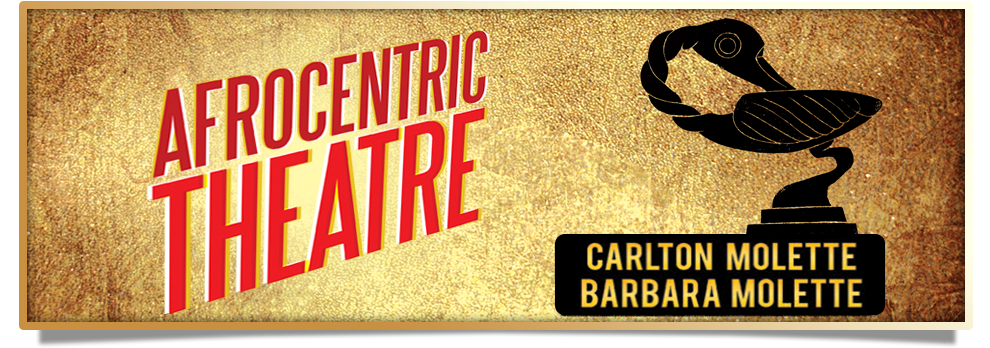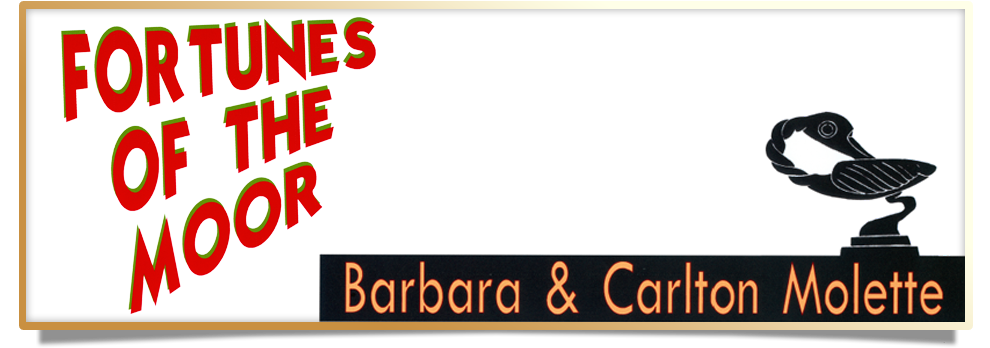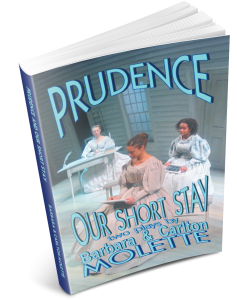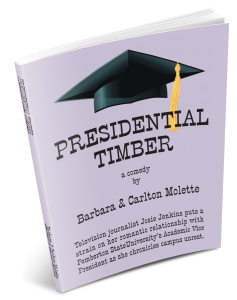AFROCENTRIC THEATRE
What’s available
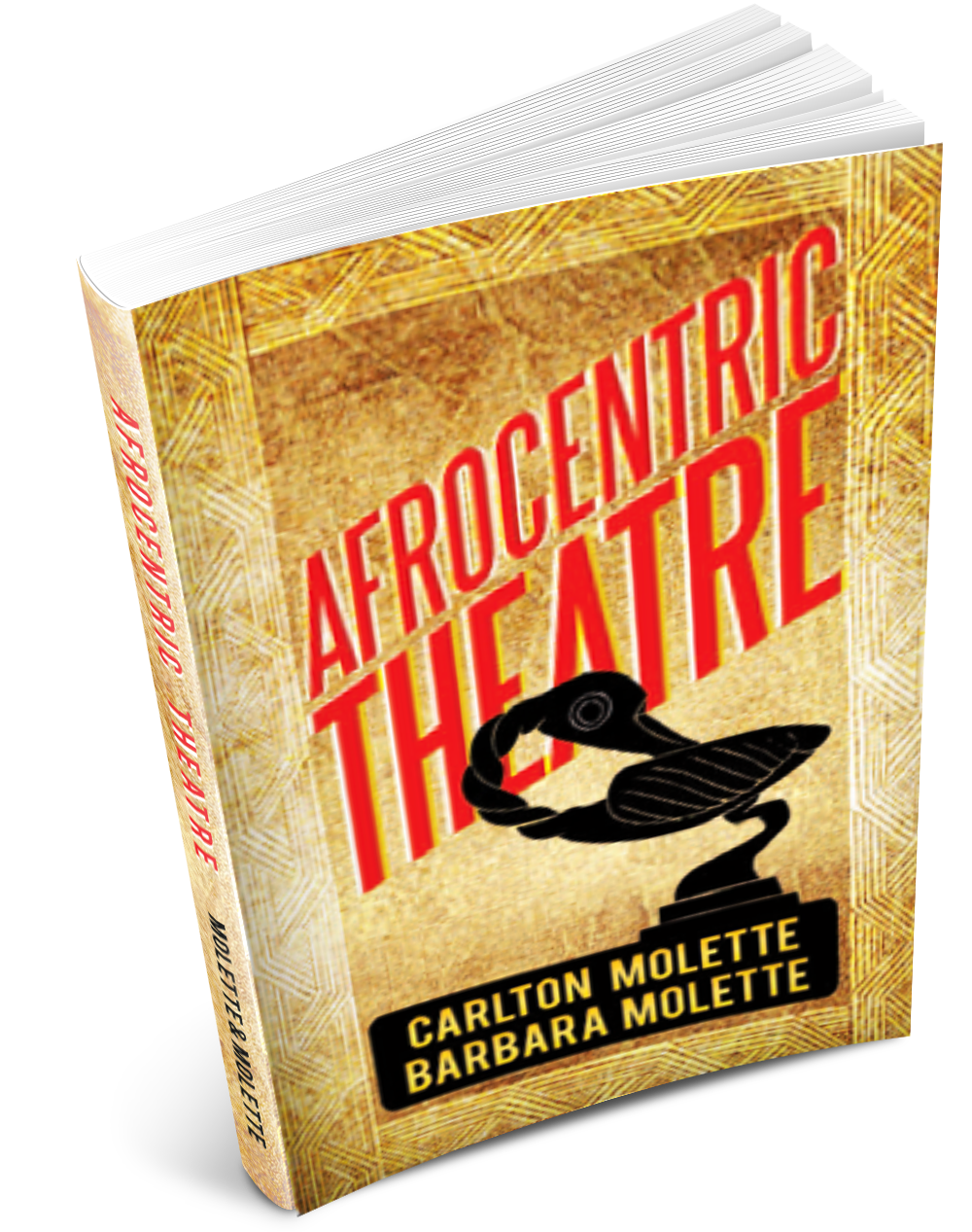 The term “Afrocentric” is a more comfortable part of the American lexicon than it was twenty years ago. While the terms “Black” and “Afrocentric” seem to be used almost interchangeably, evolving social discourse recognizes subtle differences between the two terms. The term “Black” is more suggestive of the physical characteristics associated with race, whereas the term “Afrocentric” is fundamentally based in culture and point of view.
The term “Afrocentric” is a more comfortable part of the American lexicon than it was twenty years ago. While the terms “Black” and “Afrocentric” seem to be used almost interchangeably, evolving social discourse recognizes subtle differences between the two terms. The term “Black” is more suggestive of the physical characteristics associated with race, whereas the term “Afrocentric” is fundamentally based in culture and point of view.
Afrocentric Theatre continues our quest to enhance thinking about and understanding the nature of Afrocentric theatre as expressions of culture and media for communicating values. Our effort to describe Afrocentric theatre and culture is not intended to prescribe rules for what is or is not Afrocentric or Black. Our goal remains to honor Afrocentric theatre and Afrocentric culture without dishonoring any other theatre or culture, to describe without devaluing. Variances exist within and across cultural groups. These variances do not indicate that any one person or group is better or worse or inferior or superior to any other.
This book is divided into two sections. Part 1, “Premise,” describes terms and concepts that aid in examining Afrocentric theatre from an Afrocentric point of view. Essential to that discourse is understanding how culture and values shape points of view, which in turn shape interpretations and evaluations of theatre arts. Afrocentric theatre deserves to be defined, interpreted, and evaluated in a context of Afrocentric culture and values. Interpreters and evaluators shape the standards they use to interpret and evaluate creative works. But their results are immaterial, no matter how sincere, if their culture and values differ significantly from those of the artist and the audience for whom the work of art is intended.
Part Two, “Presentation,” delineates values that, over time, have influenced Afrocentric theatrical presentations; characteristics of style, form, physical parameters of the performance environment, concepts of space and time; and expectations about how people perceive and respond to such presentations. These characteristics form a describable systematic arrangement that is uniquely Afrocentric. Traditional Afrocentric rituals, religious and secular, are recounted and examined to provide a basis for understanding Afrocentric heroic values, characterization, and how space, time, and visual imagery impact performance. Afrocentric rituals and the values they communicate are related to plays that exhibit similar values and presentation styles. Standards for evaluating and analyzing Black theatre are identified and appropriate perspectives for interpreting and evaluating individual works are posited.
Buy the Book Now!
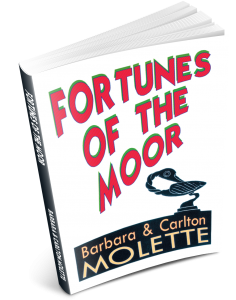 Shakespeare’s Othello concludes with Desdemona’s kin planning to “…seize upon the fortunes of the Moor….” Fortunes of The Moor supposes Desdemona, disowned by her father, takes refuge at a convent and gives birth to a son. After the Venetian victory in Cyprus under Othello’s command, Desdemona leaves their infant son at the Venetian convent and joins Othello in Cyprus.
Shakespeare’s Othello concludes with Desdemona’s kin planning to “…seize upon the fortunes of the Moor….” Fortunes of The Moor supposes Desdemona, disowned by her father, takes refuge at a convent and gives birth to a son. After the Venetian victory in Cyprus under Othello’s command, Desdemona leaves their infant son at the Venetian convent and joins Othello in Cyprus.
The play is set in Othello’s home village where an African griot tells the story. Othello’s family journeys to Venice to find Othello’s son and raise him as their own while Desdemona’s kin connive to claim Othello’s fortune by deceit, kidnapping, and murder.
Premiere in New York at the Frank Silvera Writers’ Workshop:
AUDELCO Writers’/Directors’ Award.
Chicago’s ETA Creative Arts production:
“More power to the authors for illuminating the troubling issues of race behind ‘Othello’ in such an original and provocative fashion…. This play has dignity, gravitas, and a poignant finale.”
– Chris Jones, Chicago Tribune
Abibigroma [Ghana’s National Theatre Company] presented the play at the Drama Studio, Legon; the National Theatre, Accra; and the Pan-African Historical Theatre Festival, Cape Coast.
“Artfully compressed within this story is a tale of lies, intrigue, cunning greed and murder as the battle of wits and nerves rages on.”
– Gordon Adjei, High Street Journal
Both Prudence and Our Short Stay were inspired by actual events involving Prudence Crandall and the young ladies of color who studied at her Academy in Canterbury, Connecticut from April 1, 1833 to the school’s brutally sudden closing on September 9, 1834.
Prudence is a full-length play that sees Prudence allow a young African American woman named Sarah Harris to enroll in her Academy, originally established for young White daughters of the landed gentry. After persuasion, threats, and students withdrawing from the school, Prudence makes a choice. She gains support from some important abolitionists, closes her school, and reopens as an academy for “young ladies and little misses of color.” Her action unleashes a firestorm of bigotry. Several powerful citizens seek to destroy the Academy by legal means, and anonymous vandals subject the Academy’s inhabitants to random acts of terrorism. Prudence is arrested and jailed for violating a law created for the sole purpose of closing her Academy; but she and her students remain resolute as they endure three trials, and several violent and malicious attacks, including arson. After a wanton invasion nearly destroys the Academy, the Board decides to close the school.
Our Short Stay is a one-act play based on the same historical facts as Prudence but the story is seen through the present-day experience of Sarah, a high-powered executive who does not “give back to her community” in the manner that adheres to the traditional idea that “to those whom much is given, much is expected.” Sarah’s life focuses totally on making money for herself and her employer. Julia, her guide and ancestor, Julia takes Sarah back in time and place to show her how those who came before her struggled and sacrificed to obtain whatever formal education they could.
Buy the Book Now!Out of Time– A customer attempts to purchase a used watch. But the store’s proprietor is reluctant to sell a watch to someone who does not understand what time is.
Widgets– In 1908, a newspaper reporter interviews the recently named Employee of the Year at the World Wide Widget Works.
A Fond Farewell– Charlie Burns is dead. His wife and ex-wife do not agree about how Charlie’s fond farewell should proceed. Then, Mr. Barber arrives.
Do You Care Enough?– Three “diverse” greeting card executives have a mandate from their boss to devise a new imperative for consumers to purchase cards.
Move the Car– A couple married for over thirty-five years hires an auto shop to refurbish a twenty-eight-year-old car and move it into their bedroom.
Tee-shirt History– A novice entrepreneur sells souvenirs near Atlanta’s Piedmont Park as an event celebrating Dr. Martin Luther King, Jr.’s birthday begins.
The Great Xmas Race– It’s reality television. It’s the second coming. Each contestant’s last name is King. Fame and fortune await the first three Kings to arrive in Bethlehem and present their gifts. The Kings prepare to board a flight at the world’s busiest airport.
Silver Tongue– A political hopeful learns the secret to the father’s success while endeavoring to win the office held by the father for decades.
Kin Ship– The Global Union of Nations is sending all the Black people to its Lunar Colony. The Racial Identity Determination Bureau decides who goes and who stays. Twin sisters have appealed the Bureau’s decision. The twin ordered to go wants to stay, and the one ordered to stay wants to go.
Our Dreams (Last Supper)– A Memphis café staff prepares supper for Dr. Martin Luther King, Jr. on the eve of the historic march in support of sanitation workers.
Buy the Book Now!
In this full-length comedy, television journalist Josie Jenkins chronicles campus unrest at historically Black Pemberton State University, putting a strain on her romantic relationship with Dr. Davis Noble, Pemberton’s Academic Vice President. Although Pemberton’s financial difficulties took decades to accumulate, the newly appointed President, Dr. B. W. “Buck” Dickman, seems destined to absorb the blame. Faculty and student factions foment distractions and demand President Dickman’s removal while miscellaneous others threaten calamity and advance their self-serving agendas. President Dickman appears on Josie’s newscast to unveil his transparently inadequate plan that he claims will defuse campus unrest, obliterate the school’s financial woes, and eradicate disfavor in the halls of state government. As Josie’s relationship with Davis progresses, President Dickman’s financial recovery strategy is plagued by unintended consequences that plummet his precarious position into greater peril when secrets seem destined to be revealed.
Buy the Book Now!
